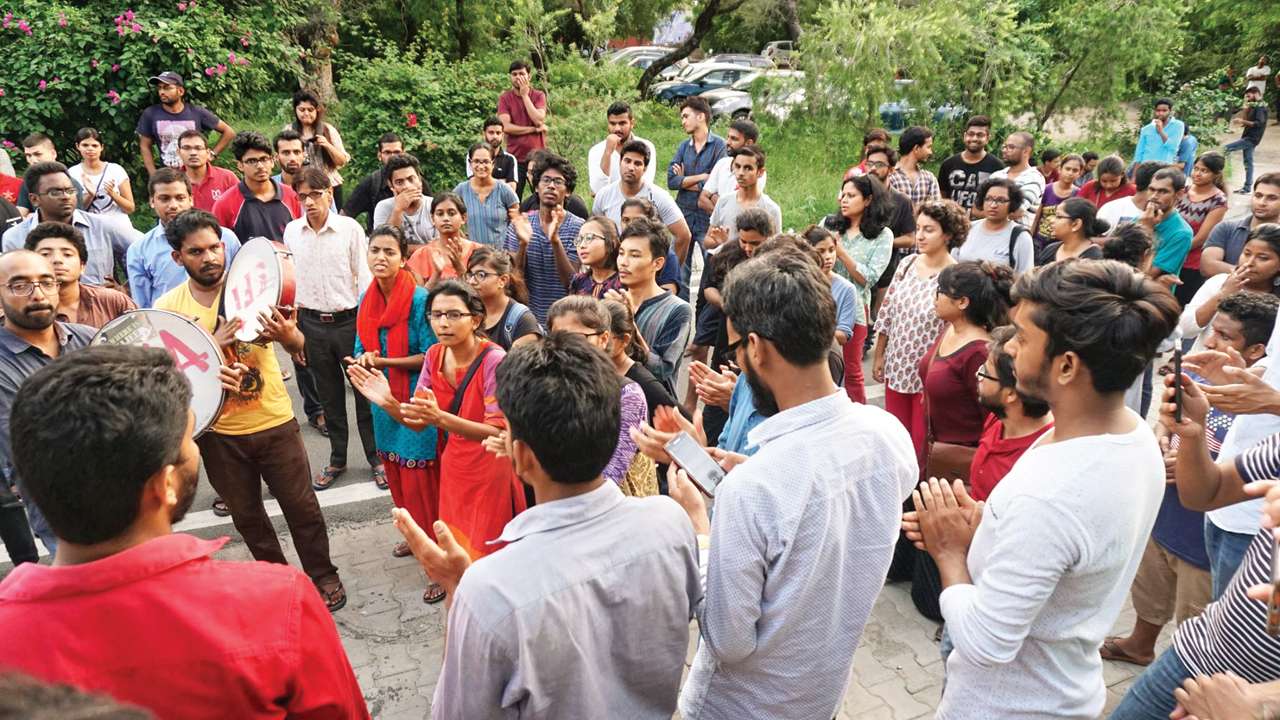
Shehla Rashid, Umar Khalid and Kanhaiya Kumar were student leaders in JNU two years ago. Then, the national media brought them into the limelight, vilified them or made them into heroes and for a short period of time, they became the centre of political discourse in the country. In trains, on street corners, in press clubs and in classrooms, they became a hot topic of discussion. None of that changed the fact that two years into their alleviation as heroes/villains, not much has changed in who they really are. They are student leaders, at best. A section of people might disagree with that and hail them as young leaders who are the future of this country. A section of people might think otherwise and label them as jobless students/anti-nationals.
Regardless of which side you tend to agree with, one must realize that the only political position where they have shown leadership is a student union, that too in JNU. And as anyone in JNU would tell you, it’s student politics is nothing like the politics of this country. While the impassioned speeches they give make them a favourite at activist gatherings and protest movements, making them into national or anti-national figures would be a desperate move. To explain where this desperation stems from, one must go back to the electoral victory of the BJP in 2014 elections. The BJP’s win also left a very weak opposition electorally, the single largest opposition party, the Congress, is limited to less than 50 seats.
A weak opposition has a detrimental effect on the quality of the democratic discourse in the country. On one side it forces people to look for alternatives where there are none, on the other side the forces in power need an enemy to attack, in order to control the narrative of politics. This is exactly what has happened in the post-2014 politics of India. But it is surprising that people on both sides have fallen for it this easily and are still going on about it. One thing which people often tend to forget in India that we are primarily a procedural democracy. Something, that has made elections the central part of our democratic process. Winning an election helps a party not only to govern a country but gives them the power to implement social change. While heroes and villains are important for propaganda, it is important to ask if they will affect the electoral outcomes in the country? It is a question that people on both sides must consider before hyperventilating on different issues.
The emergence of Jignesh Mevani has only added to the fervour with which the media discourse talks about these young leaders. Mevani, who emerged from a Dalit movement in Gujarat and fought as an independent in assembly elections is certainly different from the JNU student leaders, having led a movement and won an election. Nonetheless, the role he will play in the next Lok Sabha elections is still debatable. While he fought as an independent in the assembly elections, he was undoubtedly helped by the fact that Congress did not field a candidate from that seat. One wonders what role he will play in the upcoming elections, will he join forces with Congress or will he be an independent young Dalit leader, in which case what can be his impact on the electoral outcome of 2019. One confronts similar questions when talking about other student leaders like Akhil Gogoi from Assam.
Despite all its flaws, Congress continues to be a party which still has substantial vote share in many states of the country and the only one capable of challenging BJP. No matter what opinion you hold about Rahul Gandhi and the Congress party, in the electoral race of 2019, it is the probably him and his party that can challenge the BJP, supported by regional parties.
BJP too has a set of its own problems to deal with. From forging prospective alliances to getting the caste arithmetic right in different states, as is clear from the events in Tamil Nadu and Maharashtra recently.
Amidst this two-horse race, the young leaders can play an important role, that of influencing the narrative and political discourse. But to consider them any kind of an alternative electorally is at best a hopeful act. The hoopla around them almost suggests that they will decide the political future of the country. That is not only an overstatement, it is almost a diversion from the current policy questions and the electoral battles that lie ahead.
For now, it would do Indian politics some good to not focus on the rhetoric coming from different ideological spectrums and instead concentrate on economic and social questions that underlie the caste, class and religious issues which lead to this kind of politics, where substantive issues are buried under shouting matches. But in an era of high voltage prime time shows and rumour-filled propaganda messages circulating on phones, perhaps, that would be too much to ask for.
The author is a poet and activist based in Delhi. Views expressed are personal.